OK, greetings everyone, let's get started. I'm Dan, I'll be moderating today along with Dusan as we welcome Tim Szeto from Nanoport Technology to talk all about haptics. I think we'll be hearing from Kyle, too, who's a mechanical engineer there. Tim and Kyle, are you logged in yet?
 Hi everyone!
Hi everyone!
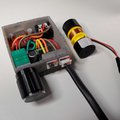 Yup! I'm here
Yup! I'm here
![]() Quick question, anybody has an idea to add a 3rd screen to a laptop?
Quick question, anybody has an idea to add a 3rd screen to a laptop?
 Hi Tim, welcome to the chat
Hi Tim, welcome to the chat
 Hey all!
Hey all!
 Hi Dule
Hi Dule
 HI Dan : )
HI Dan : )
 welcome all!
welcome all!

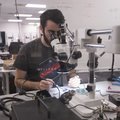 Hello hello!
Hello hello!
 Tim, can you get us kicked off with a little about yourself and Nanoport?
Tim, can you get us kicked off with a little about yourself and Nanoport?
 Hi Kyle - same question for you ;-)
Hi Kyle - same question for you ;-)
 Sure thing!
Sure thing!
 Hi my name is Tim Szeto, I'm the founder of Nanoport Technology (nanoport.io). We specialize in the development of new mobile technologies based on the application of magnetics in the fields of haptics, connectors, and device coordination.
Hi my name is Tim Szeto, I'm the founder of Nanoport Technology (nanoport.io). We specialize in the development of new mobile technologies based on the application of magnetics in the fields of haptics, connectors, and device coordination.
In the haptics space, I led the development of a new haptic motor called LMRs (Linear Magnetic Rams) that provide wideband HD haptics along with impact. https://nanoport.io/haptics/
 Hey guys, I’m Kyle, one of the mechanical engineers at Nanoport. I’ve been working on TacHammer since day 1 of it’s inception and we’ve explored a ton of different prototyping, experimenting, and haptic creation since then.
Hey guys, I’m Kyle, one of the mechanical engineers at Nanoport. I’ve been working on TacHammer since day 1 of it’s inception and we’ve explored a ton of different prototyping, experimenting, and haptic creation since then.
Our reach is pretty broad in terms of what we do, so happy to answer any and all questions around haptics, magnetics, or mechanical prototyping.

Nanoport Technology Inc | Mobile R&D Lab based in Silicon Valley
Read this on NANOPORT TECHNOLOGY INC.

Haptics
Read this on NANOPORT TECHNOLOGY INC.
 Well that didn't work out like I thought it would...
Well that didn't work out like I thought it would...
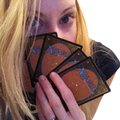 haha
haha
 Oh, hi Ashley!
Oh, hi Ashley!
 Hey Dan! The links work, it's just...ugly
Hey Dan! The links work, it's just...ugly
 The animation of the TacHammer is pretty cool --
The animation of the TacHammer is pretty cool --

 That's the one
That's the one
 One question I have is the scale of that device? How many bananas are we talking?
One question I have is the scale of that device? How many bananas are we talking?
 It's about 10-20 TacHammers per banana depending on which size you use. We have an array of sizes from Console gaming to smartphone application.
It's about 10-20 TacHammers per banana depending on which size you use. We have an array of sizes from Console gaming to smartphone application.

 Can an array of TacHammers be synced to give the same effect of a bigger one?
Can an array of TacHammers be synced to give the same effect of a bigger one?

 Wow, 37 G! Does that imply that whatever this gets mounted in has to be engineered to deal with that amount of force? Thinking like extra mechanical support of PCBs, etc.
Wow, 37 G! Does that imply that whatever this gets mounted in has to be engineered to deal with that amount of force? Thinking like extra mechanical support of PCBs, etc.
 ^ with sizes
^ with sizes
 @David Sean Great question - Yes 100%. you can use syncing to create one "large" effect from multiple smaller devices, or you can even stagger the effect as well for interesting applications.
@David Sean Great question - Yes 100%. you can use syncing to create one "large" effect from multiple smaller devices, or you can even stagger the effect as well for interesting applications.
 @Dan Maloney The peak G-force is relatively localized for the impact haptic, so as long as the TacHammer isn't mounted directly to the PCB, we generally don't see any issues.
@Dan Maloney The peak G-force is relatively localized for the impact haptic, so as long as the TacHammer isn't mounted directly to the PCB, we generally don't see any issues.
![]() With what looks like a metal plate on the right, does it mean that the force is majorly felt in one direction only, with a little bit felt in the opposite direction because of inertia?
With what looks like a metal plate on the right, does it mean that the force is majorly felt in one direction only, with a little bit felt in the opposite direction because of inertia?
 Hi
Hi
 Momentum
Momentum
 It is inertia but we feel the momentum
It is inertia but we feel the momentum
 The shiny parts on the right are magnets, they provide the suspension system for the moving mass
The shiny parts on the right are magnets, they provide the suspension system for the moving mass
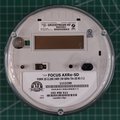 What type of equipment do you use for prototyping? 3D printers, mills, etc?
What type of equipment do you use for prototyping? 3D printers, mills, etc?

 @Nicolas Tremblay the hammer (Bi-directional mechanism) does not strike on the right side. It gets very close, but does not touch. It DOES strike on the left side, which is either plastic, poron, or silicone (as per the customers requirement)
@Nicolas Tremblay the hammer (Bi-directional mechanism) does not strike on the right side. It gets very close, but does not touch. It DOES strike on the left side, which is either plastic, poron, or silicone (as per the customers requirement)
 Similar to the magnetic array used for magnetic levitation
Similar to the magnetic array used for magnetic levitation
 Cool, I understand that's not its main purpose, but can it work backwards to sense acceleration?
Cool, I understand that's not its main purpose, but can it work backwards to sense acceleration?
 @Hash short answer: yes. We use pretty much everything available - 3D printing, machining, vacuum forming, laser cutting, etc.
@Hash short answer: yes. We use pretty much everything available - 3D printing, machining, vacuum forming, laser cutting, etc.
 @David Sean yes, sure if you have the right electronics hooked up to it
@David Sean yes, sure if you have the right electronics hooked up to it
 High performance haptic motors are also just one part of the puzzle. Touch technology is still in its infancy compared to audio and video, with most implementations as on-offs. Naturally, this creates a lot of friction with developers needing to deal with fragmentation. To help with these challenges, we’ve been involved in a lot of fundamental haptics work like standards, education and ecosystem development.
High performance haptic motors are also just one part of the puzzle. Touch technology is still in its infancy compared to audio and video, with most implementations as on-offs. Naturally, this creates a lot of friction with developers needing to deal with fragmentation. To help with these challenges, we’ve been involved in a lot of fundamental haptics work like standards, education and ecosystem development.
 *one-offs
*one-offs
 So there are standards for haptics? Or is that something that's just in the works?
So there are standards for haptics? Or is that something that's just in the works?
 @Dan Maloney They are currently in the works, a lot of this is happening under www.hapticsif.org
@Dan Maloney They are currently in the works, a lot of this is happening under www.hapticsif.org
 TIL...
TIL...
 Yeah that's a bit beyond me as well @Dan Maloney . I just bang on stuff until it works.
Yeah that's a bit beyond me as well @Dan Maloney . I just bang on stuff until it works.
 under hapticsif there are various working groups (like USB) focused on different parts of the ecosystem.
under hapticsif there are various working groups (like USB) focused on different parts of the ecosystem.
 To help with implementing haptics in your own project, we are working on an open, universal protocol haptics available first as an Arduino library. You can sign up for early access at vectorhaptics.org
To help with implementing haptics in your own project, we are working on an open, universal protocol haptics available first as an Arduino library. You can sign up for early access at vectorhaptics.org
 So am I wrong in thinking that at the large end of the scale, things like those motion control rides at Disneyworld that make you feel like you're moving while you're basically watching a movie are a kind of haptic system? Or is stuff like that just in another class by itself?
So am I wrong in thinking that at the large end of the scale, things like those motion control rides at Disneyworld that make you feel like you're moving while you're basically watching a movie are a kind of haptic system? Or is stuff like that just in another class by itself?
![]() Have you explored 3D feedback, or do you leave that to your clients to design?
Have you explored 3D feedback, or do you leave that to your clients to design?
 Where do you see the future of haptics going? More wearable devices that provide additional feedback to people, or fundamental changes in how we interact with devices on the touch side?
Where do you see the future of haptics going? More wearable devices that provide additional feedback to people, or fundamental changes in how we interact with devices on the touch side?
 @Dan Maloney Yes that's certainly a form of haptics as well, using very large motors and actuators. In that implementation, you're looking at kinesthetic and vibrotactile haptics.
@Dan Maloney Yes that's certainly a form of haptics as well, using very large motors and actuators. In that implementation, you're looking at kinesthetic and vibrotactile haptics.
 @Dan Maloney 3D feedback is pretty commonplace in things like remote surgery, and some input peripherals, commonly under "force feedback" haptics
@Dan Maloney 3D feedback is pretty commonplace in things like remote surgery, and some input peripherals, commonly under "force feedback" haptics
![]() Hello, I’m interested in the highest resolution possible in a haptic system via MEMS, Piezo, or other method. Attempting to match the resolution as much as possible of sensory nerves at finger tips and hand in general.
Hello, I’m interested in the highest resolution possible in a haptic system via MEMS, Piezo, or other method. Attempting to match the resolution as much as possible of sensory nerves at finger tips and hand in general.
 The video of magnetically sticking screens together and having them join is pretty sweet
The video of magnetically sticking screens together and having them join is pretty sweet
![]() What about the same class of the TacHammer but in bigger size, for weapon recoil simulations?
What about the same class of the TacHammer but in bigger size, for weapon recoil simulations?
 @Hash We're definitely seeing haptics become more ubiquitous across industries. Haptics has been relatively unchanged since the original playstation dualshock days. We're seeing immersion from AR/VR really push the boundaries of haptics and on top of that, we're seeing physical buttons being replaced by haptics and digital UI in most newer products.
@Hash We're definitely seeing haptics become more ubiquitous across industries. Haptics has been relatively unchanged since the original playstation dualshock days. We're seeing immersion from AR/VR really push the boundaries of haptics and on top of that, we're seeing physical buttons being replaced by haptics and digital UI in most newer products.
 @Onlinemac.stuff there are many actuators able to produce the resolution and feedback you're looking for. Generally, touch feedback is in the range of 5-500Hz, biased towards the low end (around 180Hz perception peak)
@Onlinemac.stuff there are many actuators able to produce the resolution and feedback you're looking for. Generally, touch feedback is in the range of 5-500Hz, biased towards the low end (around 180Hz perception peak)
 Yea, apple touch pad is where I first noticed I wasn't "clicking" anything
Yea, apple touch pad is where I first noticed I wasn't "clicking" anything
 @Thomas Shaddack Yes - we worked with StrikerVr (https://www.strikervr.com/) to develop a HUGE TacHammer actuator for exactly what you mentioned - weapon grade haptics.
@Thomas Shaddack Yes - we worked with StrikerVr (https://www.strikervr.com/) to develop a HUGE TacHammer actuator for exactly what you mentioned - weapon grade haptics.
 @Onlinemac.stuff it also depends on your use case. For example, optimizations will differ depending on whether you're solving for an immersive gaming experience, UI alerts, or the produce textures.
@Onlinemac.stuff it also depends on your use case. For example, optimizations will differ depending on whether you're solving for an immersive gaming experience, UI alerts, or the produce textures.
![]() @tim i am looking for mostly texture resolution, i.e. feeling a surface at the highest possible resolution. Packaging is not an issue at this point, just exploring trade space.
@tim i am looking for mostly texture resolution, i.e. feeling a surface at the highest possible resolution. Packaging is not an issue at this point, just exploring trade space.
![]() Have you done any rotational haptic?
Have you done any rotational haptic?
 @Nicolas Tremblay Can expand on the term rotational haptics? I've seen this term mentioned in a couple different ways
@Nicolas Tremblay Can expand on the term rotational haptics? I've seen this term mentioned in a couple different ways
![]() What’s the most exciting/interesting application of the TacHammer you’ve seen?
What’s the most exciting/interesting application of the TacHammer you’ve seen?
 @Onlinemac.stuff textures are typically represented better with low displacement, higher frequency units. Piezo comes to mind to be a good fit for that.
@Onlinemac.stuff textures are typically represented better with low displacement, higher frequency units. Piezo comes to mind to be a good fit for that.
 An array tracing a circle could probably serve that...
An array tracing a circle could probably serve that...
 @Onlinemac.stuff there are also other haptic technologies that use vibration to modulate the surface friction of a screen, thereby also simulating textures or materials.
@Onlinemac.stuff there are also other haptic technologies that use vibration to modulate the surface friction of a screen, thereby also simulating textures or materials.
![]() TacHammer's forces are applied in a single axis (linear). I'm talking about a force applied on a rotational axis.
TacHammer's forces are applied in a single axis (linear). I'm talking about a force applied on a rotational axis.
 textures could create some kind E-braille
textures could create some kind E-braille
 @mceldoon Weapon type haptics are obviously very cool (we have an AWESOME shotgun effect where you can feel the reload of the barrel) but we also have some collaborations on some up and coming interactive art installations that we're super excited about. I'm sure our team will be releasing info about it once it's live.
@mceldoon Weapon type haptics are obviously very cool (we have an AWESOME shotgun effect where you can feel the reload of the barrel) but we also have some collaborations on some up and coming interactive art installations that we're super excited about. I'm sure our team will be releasing info about it once it's live.
 @Nicolas Tremblay like ERMs?
@Nicolas Tremblay like ERMs?
![]() Oh interactive art installation haptics sounds awesome!
Oh interactive art installation haptics sounds awesome!
 @David Sean yes, there are a few research projects looking into using haptics for communication
@David Sean yes, there are a few research projects looking into using haptics for communication
 Yeah - it's amazing when you put technology into the hands of artists! we're pumped :) @error404notfound
Yeah - it's amazing when you put technology into the hands of artists! we're pumped :) @error404notfound
![]() yeah that sounds awesome! How can i stay up to date on when that would be announced?
yeah that sounds awesome! How can i stay up to date on when that would be announced?
 @mceldoon You can check out all of our press stuff here: https://nanoport.io/press/
@mceldoon You can check out all of our press stuff here: https://nanoport.io/press/
 Art and haptics meet in an article I wrote a long time back:
Art and haptics meet in an article I wrote a long time back:

https://hackaday.com/2015/09/04/experimental-theater-helps-field-test-haptic-navigation-device/
Experimental Theater Helps Field Test Haptic Navigation Device
The "absorbed device user" meme, like someone following Google Maps on a smart phone so closely that they walk out into traffic, is becoming all too common. Not only can an interface that requires face time be a hazard to your health in traffic, it's also not particularly useful to the visually impaired.
 ohh awesome!
ohh awesome!
 @David Sean vibrotactile touch perception has different design parameters vs braille; some work is being done using things like large arrays on the body (via vest, or seat) for this kind of application
@David Sean vibrotactile touch perception has different design parameters vs braille; some work is being done using things like large arrays on the body (via vest, or seat) for this kind of application
![]() Haptic feedback vest == Neosensory , Dr David Eagleman and Dr Scott Novich
Haptic feedback vest == Neosensory , Dr David Eagleman and Dr Scott Novich
 https://hackaday.com/2015/09/04/experimental-theater-helps-field-test-haptic-navigation-device/ very cool project
https://hackaday.com/2015/09/04/experimental-theater-helps-field-test-haptic-navigation-device/ very cool project
![]() @tim ERM?
@tim ERM?
![]() In transparency I am the dev advocate for Neosensory :)
In transparency I am the dev advocate for Neosensory :)
 @Nicolas Tremblay ERM - Eccentric Rotating Mass. This is your typical vibration motor found in older gaming devices like playstation and xbox consoles
@Nicolas Tremblay ERM - Eccentric Rotating Mass. This is your typical vibration motor found in older gaming devices like playstation and xbox consoles
 @error404notfound There is a spy amongst us! All jokes aside, Buzz is super cool - let us know when you want to stick TacHammer in there so we can add some more depth to the feedback :)
@error404notfound There is a spy amongst us! All jokes aside, Buzz is super cool - let us know when you want to stick TacHammer in there so we can add some more depth to the feedback :)
 @error404notfound very cool! Would be great to connect and learn more about your project
@error404notfound very cool! Would be great to connect and learn more about your project
![]() Nope, not ERM, more like suddenly braking a rotating mass
Nope, not ERM, more like suddenly braking a rotating mass
![]() I was part of a hackathon team a while back which designed a virtual hug vest for use on extended stays aboard the ISS. It was a neat challenge and can see an approach like this helping psychologically on-orbit and also in more terrestrial applications.
I was part of a hackathon team a while back which designed a virtual hug vest for use on extended stays aboard the ISS. It was a neat challenge and can see an approach like this helping psychologically on-orbit and also in more terrestrial applications.
 @Nicolas Tremblay that brings up an idea -- I wonder how small reaction wheels could fit into a haptic feedback device...
@Nicolas Tremblay that brings up an idea -- I wonder how small reaction wheels could fit into a haptic feedback device...
 @Nicolas Tremblay like a flywheel? We haven't experimented with that, but there are some other ERMs adopted to exploit this kind of effect before linear actuators became more widespread
@Nicolas Tremblay like a flywheel? We haven't experimented with that, but there are some other ERMs adopted to exploit this kind of effect before linear actuators became more widespread
 at small size you would need very high rotation speed
at small size you would need very high rotation speed
 @Onlinemac.stuff Super cool! I'm sure combining the video of a loved one, the sound of their voice, and the feeling of their touch through haptics helps to fight off home sickness.
@Onlinemac.stuff Super cool! I'm sure combining the video of a loved one, the sound of their voice, and the feeling of their touch through haptics helps to fight off home sickness.
![]() LOL I am a terrible spy :) , would love to connect with anyone interested drop me a line at stenhouse@neosensory.com + we are currently running a contest if you want to check it out. https://neosensory.com/blog/new-neosensory-contest/
LOL I am a terrible spy :) , would love to connect with anyone interested drop me a line at stenhouse@neosensory.com + we are currently running a contest if you want to check it out. https://neosensory.com/blog/new-neosensory-contest/
![]() @Kyle That was exactly the challenge. With trips on the order of months and years, a tool like this would serve the “human” side of exploration well.
@Kyle That was exactly the challenge. With trips on the order of months and years, a tool like this would serve the “human” side of exploration well.
![]() I am also interested in building a vibration composer for haptics in general, I have used lofelt studio a little but would love to hear thoughts or experience on the development of realistic patterns or "textures"
I am also interested in building a vibration composer for haptics in general, I have used lofelt studio a little but would love to hear thoughts or experience on the development of realistic patterns or "textures"
 @error404notfound for textures, a good composer you may want to check out is from www.interhaptics.com
@error404notfound for textures, a good composer you may want to check out is from www.interhaptics.com
 @error404notfound Awesome! I think one of my colleagues actually mentioned this recently so it is on our radar. Thanks for the reminder :) super cool.
@error404notfound Awesome! I think one of my colleagues actually mentioned this recently so it is on our radar. Thanks for the reminder :) super cool.
 @Onlinemac.stuff , looking for similar. Would like as close to instantaneous force feedback from haptic glove to control a robotic hand, but I'm not sure best route, or if TecHammer is good for this.
@Onlinemac.stuff , looking for similar. Would like as close to instantaneous force feedback from haptic glove to control a robotic hand, but I'm not sure best route, or if TecHammer is good for this.
![]() @Dan Maloney thanks, that's exactly what I mean, a reaction wheel
@Dan Maloney thanks, that's exactly what I mean, a reaction wheel
 have a long term project where I'd like to work on a watch remotely using haptic feedback and control, though it's a bit of an insane idea haha
have a long term project where I'd like to work on a watch remotely using haptic feedback and control, though it's a bit of an insane idea haha
 @Drew TacHammer is a great option for a haptic glove. Low latency, high resolution feedback, and wide operating frequency band. We love insane ideas!
@Drew TacHammer is a great option for a haptic glove. Low latency, high resolution feedback, and wide operating frequency band. We love insane ideas!
 @Drew TacHammer is more than capable of your application. To support the playback you'll need to consider the electronics and haptic inputs as well to ensure the realtime experience you're going for
@Drew TacHammer is more than capable of your application. To support the playback you'll need to consider the electronics and haptic inputs as well to ensure the realtime experience you're going for
 @Drew sounds like a cool project, feel free to connect if/when you want to go deeper into the haptics implementation. That's why we're here :)
@Drew sounds like a cool project, feel free to connect if/when you want to go deeper into the haptics implementation. That's why we're here :)
 Where do you see the biggest opportunity for haptics? Some places where you're surprised it's not being utilized today?
Where do you see the biggest opportunity for haptics? Some places where you're surprised it's not being utilized today?
 @tim, would that be 2 sets of Techammers, one on glove as feedback, the other on hand to actuate? I'm still a beginner in all this but have a friend in Spain doing some VR haptics projects, techammer is totally new to me
@tim, would that be 2 sets of Techammers, one on glove as feedback, the other on hand to actuate? I'm still a beginner in all this but have a friend in Spain doing some VR haptics projects, techammer is totally new to me
 Also thanks- yeah, a bit crazy. Preparing for old age is a good way of putting it I suppose
Also thanks- yeah, a bit crazy. Preparing for old age is a good way of putting it I suppose
 @Hash good question, I think the biggest opportunity is in expanding the haptic applications in common devices. Large Brands and manufacturers are spending more to include higher fidelity haptic units, and this is an incredible opportunity for both content and fundamental innovation
@Hash good question, I think the biggest opportunity is in expanding the haptic applications in common devices. Large Brands and manufacturers are spending more to include higher fidelity haptic units, and this is an incredible opportunity for both content and fundamental innovation
![]() Re simulation of textures... any chance of this tech to sim button edges on touchscreen displays? Replacing natively haptic button arrays with fondleslabs that require hand-eye coordination is... awful.
Re simulation of textures... any chance of this tech to sim button edges on touchscreen displays? Replacing natively haptic button arrays with fondleslabs that require hand-eye coordination is... awful.
 Yea, when registering FaceID on an iPhone just the subtle vibration it makes when you complete rotating your head and aren't looking at the screen causes to take a look and see why, just blends right in to the experience like someone tapping you on the shoulder
Yea, when registering FaceID on an iPhone just the subtle vibration it makes when you complete rotating your head and aren't looking at the screen causes to take a look and see why, just blends right in to the experience like someone tapping you on the shoulder
 @Hash In terms of where it's not being utilized, Haptics is at a transitional stage right now. We're seeing peeks into industries like AR/VR and Autotmotive where Haptics will be totally re-invented soon. However, we're also seeing haptics in a lot of common applications that is very under utilized or poorly utilized. Haptics can be so much more than a single buzz, but that's 90% of the use cases these days.
@Hash In terms of where it's not being utilized, Haptics is at a transitional stage right now. We're seeing peeks into industries like AR/VR and Autotmotive where Haptics will be totally re-invented soon. However, we're also seeing haptics in a lot of common applications that is very under utilized or poorly utilized. Haptics can be so much more than a single buzz, but that's 90% of the use cases these days.
![]() Would you have recommendations for books or podcasts that really dive deep into touch as an interface?
Would you have recommendations for books or podcasts that really dive deep into touch as an interface?
 @Thomas Shaddack I agree to a point. In automotive applications, virtual buttons are terrible. Some kind of "behind-the-screen" haptic feedback would make them better, but still no substitute for actual physical buttons.
@Thomas Shaddack I agree to a point. In automotive applications, virtual buttons are terrible. Some kind of "behind-the-screen" haptic feedback would make them better, but still no substitute for actual physical buttons.
![]() Never heard of a haptics composer, is that usually for ar/vr applications?
Never heard of a haptics composer, is that usually for ar/vr applications?
 @Drew will depend on your use case. Typically for a hand application, a palm actuator would be good for low-frequency haptics, and fingertips would be good for textures. Palm and Index at minimum; palm, index and middle finger as a good balance.
@Drew will depend on your use case. Typically for a hand application, a palm actuator would be good for low-frequency haptics, and fingertips would be good for textures. Palm and Index at minimum; palm, index and middle finger as a good balance.
 I would use the haptic technology for dispensing of liquids
I would use the haptic technology for dispensing of liquids
 @victormu977 Cool idea! We've seen lots of interesting ways to apply haptic actuators beyond touch feedback. Great example :)
@victormu977 Cool idea! We've seen lots of interesting ways to apply haptic actuators beyond touch feedback. Great example :)
 @Thomas Shaddack haptic edge buttons is a big area of investigation for many device companies, hopefully there will be a good implementation in the not-so-distant future
@Thomas Shaddack haptic edge buttons is a big area of investigation for many device companies, hopefully there will be a good implementation in the not-so-distant future
 And suddenly, we're at the end of our allotted hour, which is when we like to thank our guests and let them get back to work. Of course the Hack Chat is always open, so feel free to continue the conversation. Tim and Kyle, thanks so much for stopping by today, and special thanks to Ashley for being a great go-between and helping me set everything up. Thanks to all for the great questions, too -- I feel like I really learned a lot today.
And suddenly, we're at the end of our allotted hour, which is when we like to thank our guests and let them get back to work. Of course the Hack Chat is always open, so feel free to continue the conversation. Tim and Kyle, thanks so much for stopping by today, and special thanks to Ashley for being a great go-between and helping me set everything up. Thanks to all for the great questions, too -- I feel like I really learned a lot today.
![]() Thanks @tim and @Kyle for all the interesting info.
Thanks @tim and @Kyle for all the interesting info.
 @error404notfound for a general backgrounder in haptics, check out hapticlabs.io. There is a lot of new and recent work in haptics today, IEEE for example has a lot of recent work. Active convos also on ClubHouse: https://www.joinclubhouse.com/club/haptics-club
@error404notfound for a general backgrounder in haptics, check out hapticlabs.io. There is a lot of new and recent work in haptics today, IEEE for example has a lot of recent work. Active convos also on ClubHouse: https://www.joinclubhouse.com/club/haptics-club
 A pleasure! :)
A pleasure! :)
 Thank guys! Fun answering some questions and chatting about haptics - You can always reach us via our website https://nanoport.io/contact/
Thank guys! Fun answering some questions and chatting about haptics - You can always reach us via our website https://nanoport.io/contact/
 You can also add TacHammers to your bom at https://www.digikey.com/en/products/detail/nanoport-technology-inc/TH-153308-S/13592932
You can also add TacHammers to your bom at https://www.digikey.com/en/products/detail/nanoport-technology-inc/TH-153308-S/13592932
![]() Thank you do much for your time!
Thank you do much for your time!
 and feel free to ping us directly via nanoport.io and info@nanoport.io
and feel free to ping us directly via nanoport.io and info@nanoport.io
![]() Appreciate this chat, I learned a lot!
Appreciate this chat, I learned a lot!
 <3 @Parisi.dave
<3 @Parisi.dave
 Thanks all. Transcript coming up directly. And don't miss next week's Hack Chat:
Thanks all. Transcript coming up directly. And don't miss next week's Hack Chat:
 A pleasure :)
A pleasure :)
 Dan Maloney
Dan Maloney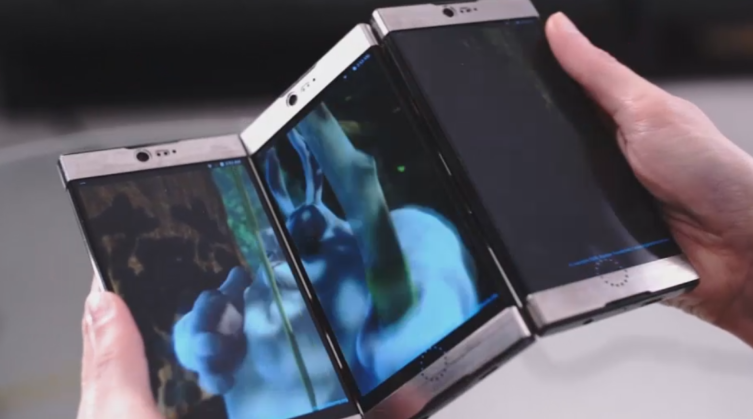
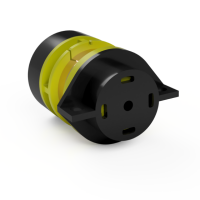
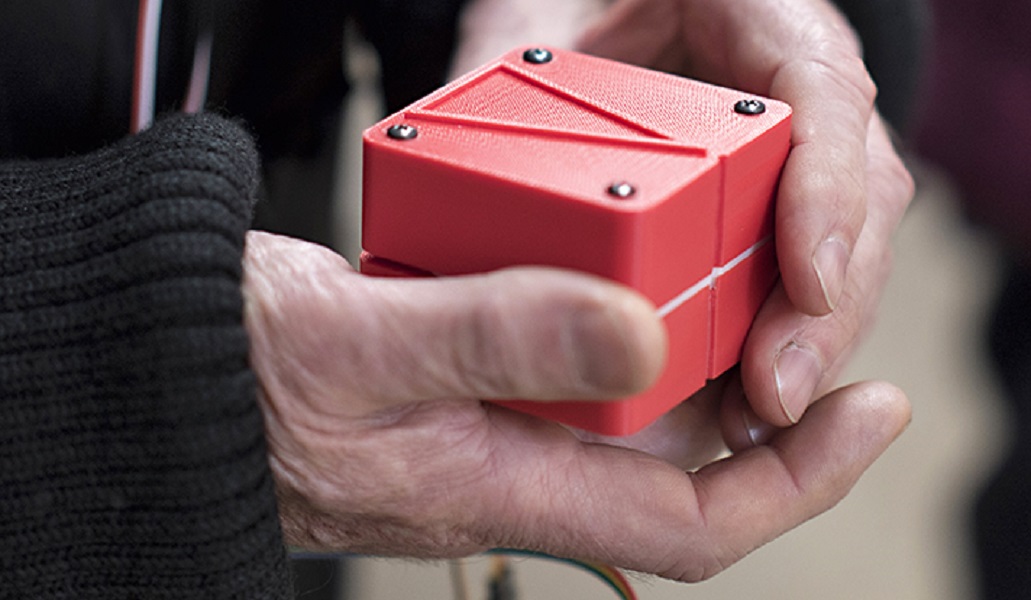
Discussions
Become a Hackaday.io Member
Create an account to leave a comment. Already have an account? Log In.